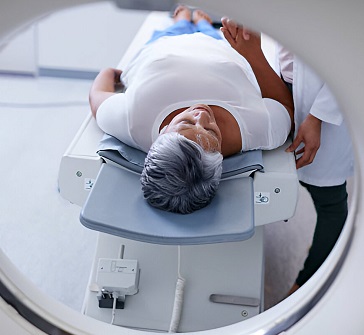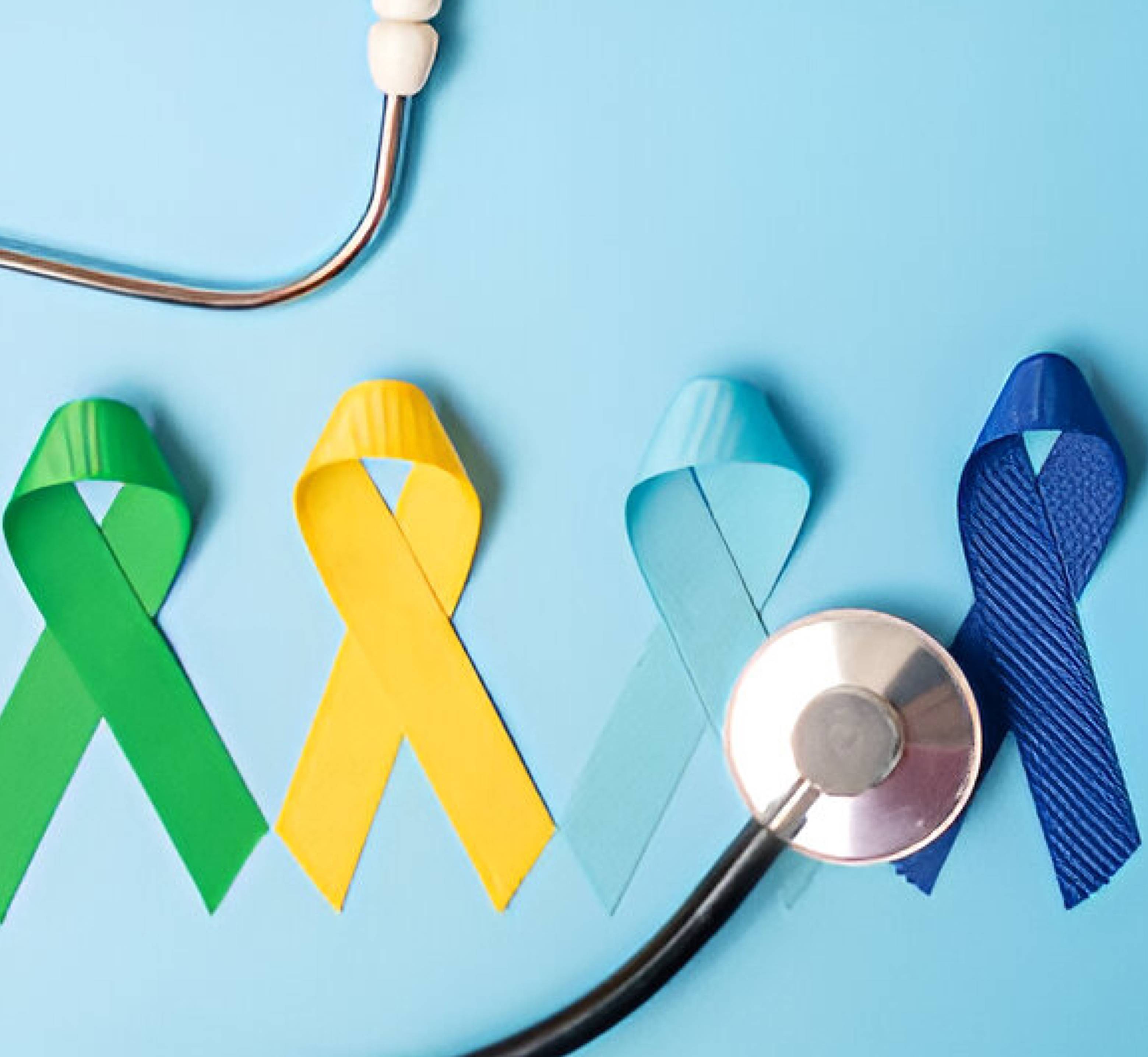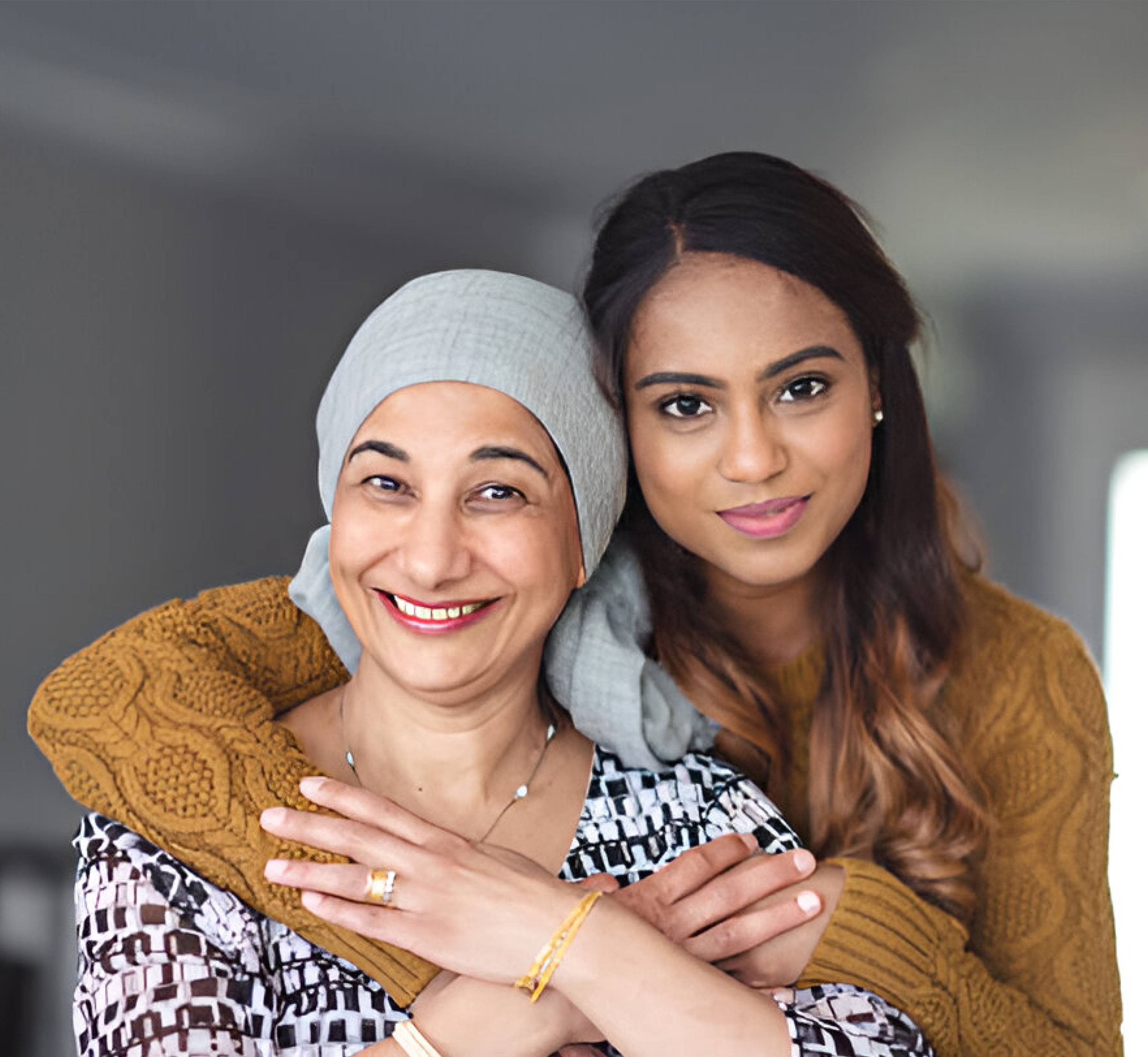 Book Appt.
Book Appt.
 Call Now
Call Now


Cancer is a large group of diseases with one thing in common: They happen when normal cells become cancerous cells that multiply and spread. Your genes send instructions to your cells—like when to start and stop growing, for example. Normal cells follow these instructions, but cancer cells ignore them.
Types of cancer
There are more than 100 forms of cancer. Healthcare providers classify them based on where they originate in your body and the type of tissue they affect. There are three general cancer classifications:
Symptoms
Cancer symptoms can differ from person to person. They are determined by the type and stage of your cancer. General cancer symptoms can include:
Causes
Cancer is a hereditary disease. However, this does not necessarily imply that it is inherited. It occurs when genes controlling cell activity mutate (alter). They cause aberrant cells to develop and multiply, eventually affecting how your body functions. These cells form cancer clusters or tumors. Cancerous cells may break free from tumors and move to other parts of your body via the lymphatic system or bloodstream. (Medical professionals refer to this as metastasis.)
Diagnosis
A thorough physical examination is performed by healthcare experts before making a cancer diagnosis. They will ask you to detail your symptoms and your family's medical history. They may also have to do:
Cancer stage
Cancer staging systems help healthcare providers plan treatment and develop a prognosis (expected outcome).
Most cancers progress in four stages. A number of factors influence the exact stage, including the size and location of the tumor.
Stages I-III (1-3) (early-stage or locally progressed) typically depict cancer that has grown straight into surrounding tissue or disseminated to nearby lymph nodes.
Stage IV (4) (or metastatic) indicates that cancer cells have spread to distant sections of your body via the bloodstream or lymphatic system.
Treatment
Healthcare practitioners may utilize a variety of treatments, sometimes mixing them depending on your situation. Common cancer therapies include:
Cancer therapies can induce a variety of negative effects. These side effects differ based on the treatment you receive and how well your body tolerates it. If you experience any adverse effects while undergoing cancer treatment, notify your doctor right away. They may be able to recommend or prescribe drugs that will help.
Prevention
Cancer cannot always be prevented, especially when unavoidable risk factors contribute to its development. However, there are steps you may take to minimize your risk:
Conclusion
Cancer is a complicated and difficult disease that affects millions of individuals globally. Early identification, a healthy lifestyle, and breakthroughs in treatment have improved the outcomes for many cancer patients. Understanding the causes, symptoms, and treatment choices allows people to take proactive efforts to lower their risk and make informed health decisions. Regular screenings, lifestyle adjustments, and seeking medical advice are all necessary in the fight against cancer.
SHALBY Sanar International Hospitals provides extensive medical procedures backed up with our state-of-the-art technology and a team of highly qualified & experienced clinical experts.

Grade 2 Endometrium Cancer | Ms. Robiyakhon | Uzbekistan | Dr. Archit Pandit | SHALBY Sanar

Male Breast Cancer Recovery Story | Dr. Archit Pandit | Cameroon | SHALBY Sanar

Ms. Nafisa’s Inspiring Breast Cancer Recovery | Dr. Archit Pandit | Uzbekistan | SHALBY Sanar International Hospitals

Stage4 colon cancer is curable - Colon cancer with liver metastasis | Kenya | Dr Archit Pandit

Patient from Kenya Treated by Dr. Archit Pandit | SHALBY Sanar International Hospitals

Double Cancer Victory: Mrs. Salma Kapoor's Inspiring Recovery Story | Dr. Archit Pandit

Patient from Uzbekistan Treated by Dr. Archit Pandit | SHALBY Sanar International Hospitals

Patient from Uzbekistan Treated by Dr. Archit Pandit | SHALBY Sanar International Hospitals

Successful Carcinoma Buccal Mucosa Surgery of a Patient from Nigeria by Dr. Archit Pandit

Successful Colon Cancer Surgery of Mr. Faraidun Kaka Bra Amin Amin's from Iraq | Dr Archit Pandit

Miraculous Recovery of a patient from Uzbekistan battling Ovarian Cancer | Dr. Archit Pandit

Successful Cancer Detection & Surgery by Dr. Archit Pandit | SHALBY SHALBY Sanar International Hospitals

Successful Colon Cancer Treatment of a patient from Iraq by Dr Archit Pandit | Surgical Oncology

Successful Glottis Mass & Carcinoma Vocal Cord Treatment of a patient from Iraq by Dr Archit Pandit

Successful Stage 4 Colon Cancer Treatment of a patient from Kenya by Dr Archit Pandit

Surviving the Odds: 56-Year-Old's Journey with Recurrent Carcinoma Vocal Cord | Dr. Archit Pandit

Surviving Recto-Sigmoid Cancer: Mr. Syamand Ahmed's Inspiring Journey

Success Story: Iraqi Patient's Liver Tumour Treatment at SHALBY Sanar International Hospitals

Cytoreductive Surgery Success: Iraqi Patient's 30cm Ovarian Tumor Removed Safely

Beating Liver Cancer: Mr. Abdirashid's Inspiring Story

Ms. Nejood's Success Over Pancreatic Cancer: A Remarkable Journey

Transforming Smiles: Revolutionary Buccal Commando Procedure

Wide Local Excision Surgery & Microvascular Reconstruction of a Cancer patient

Successful Surgery of Esophgeal Cancer

Successful Lung Cancer Surgery of Ms. Jerioth Wanjiru from Kenya

Para Thyroidectomy on Pt Jawad Kadhim Tweli from Iraq

Dr Archit Pandit discusses the fascinating case of Geeta Rani
Our doctors pen down their research findings and experiences from time to time. Their words provide deep insight into the latest techniques, technologies and other advancements in healthcare. It provides expert answers to all kinds of health questions for real-life issues.
VIEW ALL




Since the day of its foundation, SHALBY Sanar International Hospitals is committed to provide comprehensive healthcare services. It regularly organizes awareness programs in its premises and encourages outdoor healthcare activities and camps with an intent to put focus on preventive healthcare.
VIEW ALL